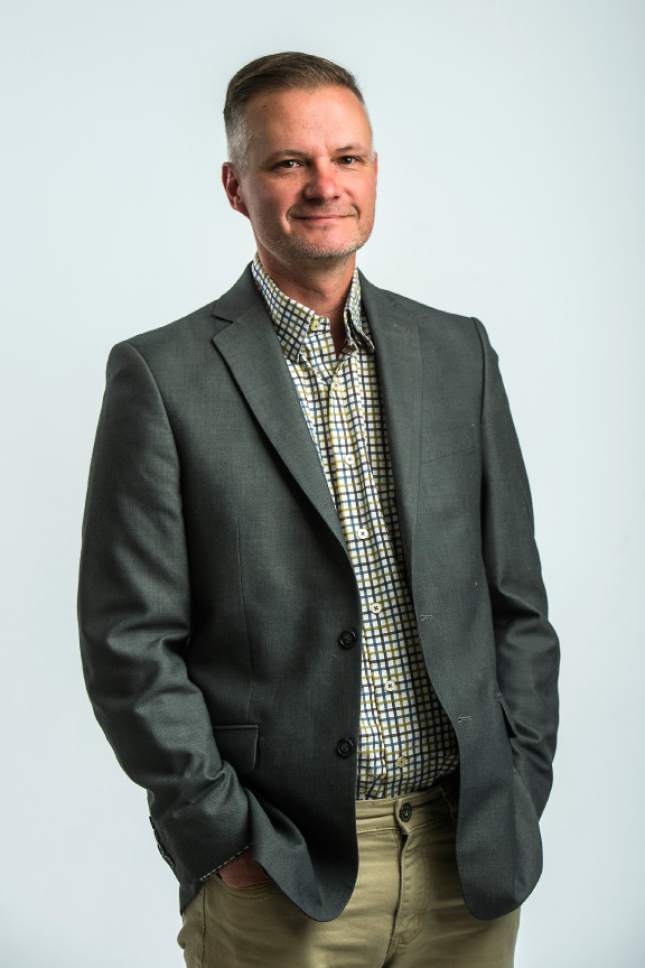This is an archived article that was published on sltrib.com in 2017, and information in the article may be outdated. It is provided only for personal research purposes and may not be reprinted.
The wailing and gnashing of teeth that has followed the announcement of Salt Lake City's four new homeless resource centers is probably about the most predictable thing this side of Donald Trump tweeting something outrageous.
Unfortunately, what has become almost as predictable is that Mayor Jackie Biskupski's administration will compound the problem by inadequate public outreach, poor communication and knee-jerk defensiveness when people don't fall in line with the backroom decisions.
The public, the mayor has complained on more than one occasion, is simply not very well informed on the mission and strategy behind the new shelters.
And whose fault is that?
A blue-ribbon commission spent more than a year studying how to alleviate what has become a true homeless crisis in downtown Salt Lake City, spending countless hours developing detailed criteria for the new shelters and vetting potential locations.
The thing is, nobody bothered to spend five minutes outside the meeting rooms explaining the grand vision or how the shelters would look on the ground.
Instead, it was nearly fall before a verdict was even reached on how many shelters would be built. With an edict from Utah House Speaker Greg Hughes that the Legislature wanted to see real progress by January or state lawmakers would step in, the city had to scramble to meet its deadline.
So the public got shut out and here we are, with the mayor facing residents reacting like an ISIS training camp is being dropped next door and there's nothing they can do or say to change it. Not that they won't do their darndest to try, with talk of lawsuits already percolating.
On some level, the logic behind the cloistered, top-down approach makes sense. As the mayor has explained, the decision was made so as not to pit communities against one another and turn the process into a Thunderdome-style contest of political muscle to test which residents have the lobbying power to push the shelters off onto their less-organized neighbors.
But that wasn't the only alternative.
The mayor should have set out in the summer to begin explaining the vision for the new shelters — the novel design and expanded programs, the police strategy, the rationale behind the respective locations.
A little conversation doesn't mean people will suddenly volunteer to have the shelters in their neighborhoods. But real community engagement could have made a difference.
Jill Jones, who lives in the Sugar House neighborhood where the Simpson Avenue shelter will almost certainly be built, first read of the mayor's decision on a community discussion board and was understandably alarmed.
But after attending one of the first community meetings, she is coming around.
"I'm not excited about it, but I feel like it is something that needs to happen," she said. "[City officials] just weren't informative until after the fact, until everyone is surprised and felt like they weren't included. It seems like it's too late now. [Residents] didn't really have a voice so they're just angry and scared."
Imagine if those discussions had actually taken place before the sites were announced.
This has, unfortunately, become a well-established pattern in Biskupski's first year — a cycle of poor communication with the public or City Council followed by damage control after things go bad.
Remember her purge of vanquished Mayor Ralph Becker's employees when she took office? Or her campaign criticism over not charging developers impact fees on new construction, only to see the moratorium extended into this year after she failed to come up with a timely solution?
And more recently, the council got surprised with a cost overrun for the airport rebuild of several hundred million dollars that had to be rushed through, again cutting short public input.
We all want to feel like we're heard and that those who make the decisions care what we think. But when the mayor chooses not to communicate with the public, it sends a message as well: that no one cares what you think.
Twitter: @RobertGehrke





